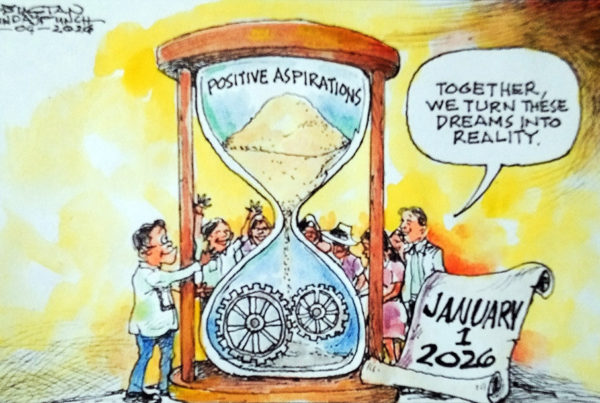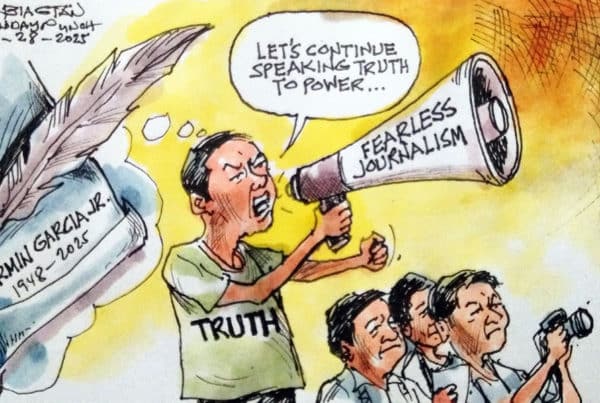Editorial
More than a feel-good rhetoric
AS elected officials, our mayors and governors are mandated under the Local Government Code to report on their programs as well as propose policies and projects at least once a year to the public, through the corresponding municipal, city or provincial council whose members are likewise elected representatives of the people.
And so at the beginning of the year (technically it should be on the first regular session of the council at the start of the calendar year), we get the state of the municipality/city/province addresses from our local government chiefs — mini versions of the President’s State of the Nation address which we witness around the middle of the year.
Of course our local leaders always use this opportunity to tell a happy tale.
They make an inventory of all the projects that were implemented, services delivered, and all other accomplishments that their administration achieved, sometimes even backed by statistics, amounts, and other supporting numbers. All that is well and good. Credit must be given where it is deserved. It would be even better, in the name of transparency and good governance, if these declared accomplishments are presented in a format that is easily accessible and verifiable by the public. In this sense, the speeches in the are more meaningful, more tangible and directly relevant to the people’s lives than the President’s big discourse.
At the same time — and this is what we often do not hear — our leaders need to be honest and pragmatic enough to acknowledge in their annual address what problems there are that remain. And definitely there are many.
One of the marks of a great public servant-leader, more than being able to deliver a feel-good speech for himself/herself that brings his/her audience of supporters to repeated bursts of applause, is being able to admit and face up to challenges, offering solutions that will benefit the public, and taking the lead in implementing these. It’s called ingenuity and vision.
What of the peace and order situation? Issues in agriculture? Employment opportunities? The protection of our natural resources? Improvements in the education sector?
The identification of problems and their level of gravity as these affect the lives of constituents indicate that officials are sensitive to the people’s needs and provide assurance that solutions are forthcoming. It shows that our public servants are intent on their duty to make the people who voted for them feel genuinely good.









